“My ancestors came to North America in 1633. My grandfather lived here and used to bottle milk and deliver it in town with the horse. My mother was born up the road a little piece, and my parents lived here all their life, pretty well. I was born in town, in the old hospital in 1947. I spent 3 years in Macdonald College in Montreal, but other than that I have been here.”
Eleven years ago, I went to my family doctor for a check-up because I hadn’t had one in two years. I took the stroke right in front of his eyes.
“That was lucky. I got weak and I stumbled – it was at the end of the room where he does the evaluations. He said, ‘Can you walk out to the car and I will take you to the hospital?’ I couldn’t walk, so they had to bring the ambulance to take me to the hospital. I spent the next month in the hospital, but I was still on my cell phone to the milk board, trying to direct them on what to do. I didn’t really quit, I never really quit.”
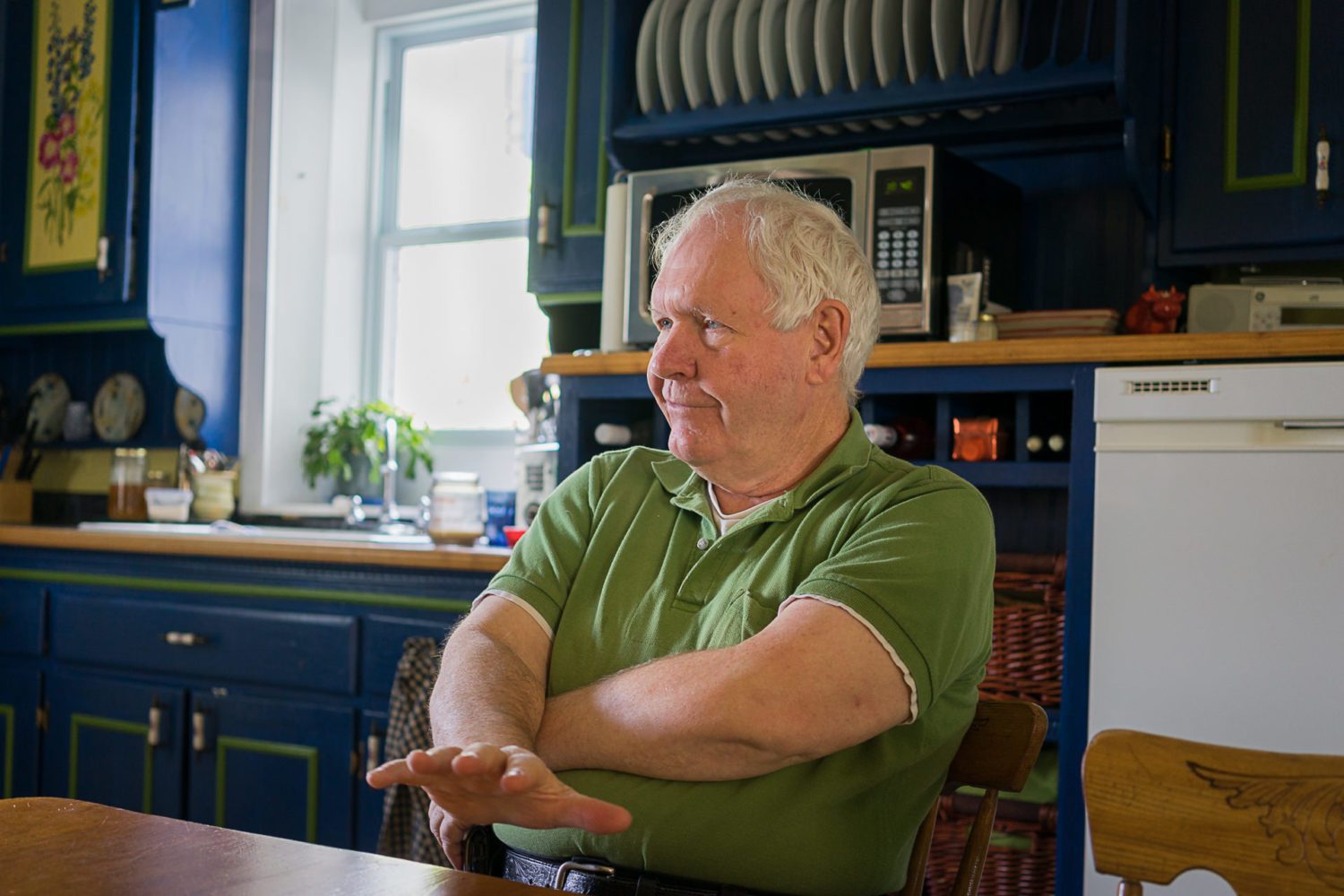
“For rehab, I had the option to stay in our local hospital or to go to Hull. To go to Hull I would have had to basically live there for a couple of weeks. If I and others did that, then our local rehab would shut down. So I just said, ‘Better to support the guys at home.’ I didn’t know the people in the Hull rehab centre, but I did know the people here, and I respected them. So I stayed here.”
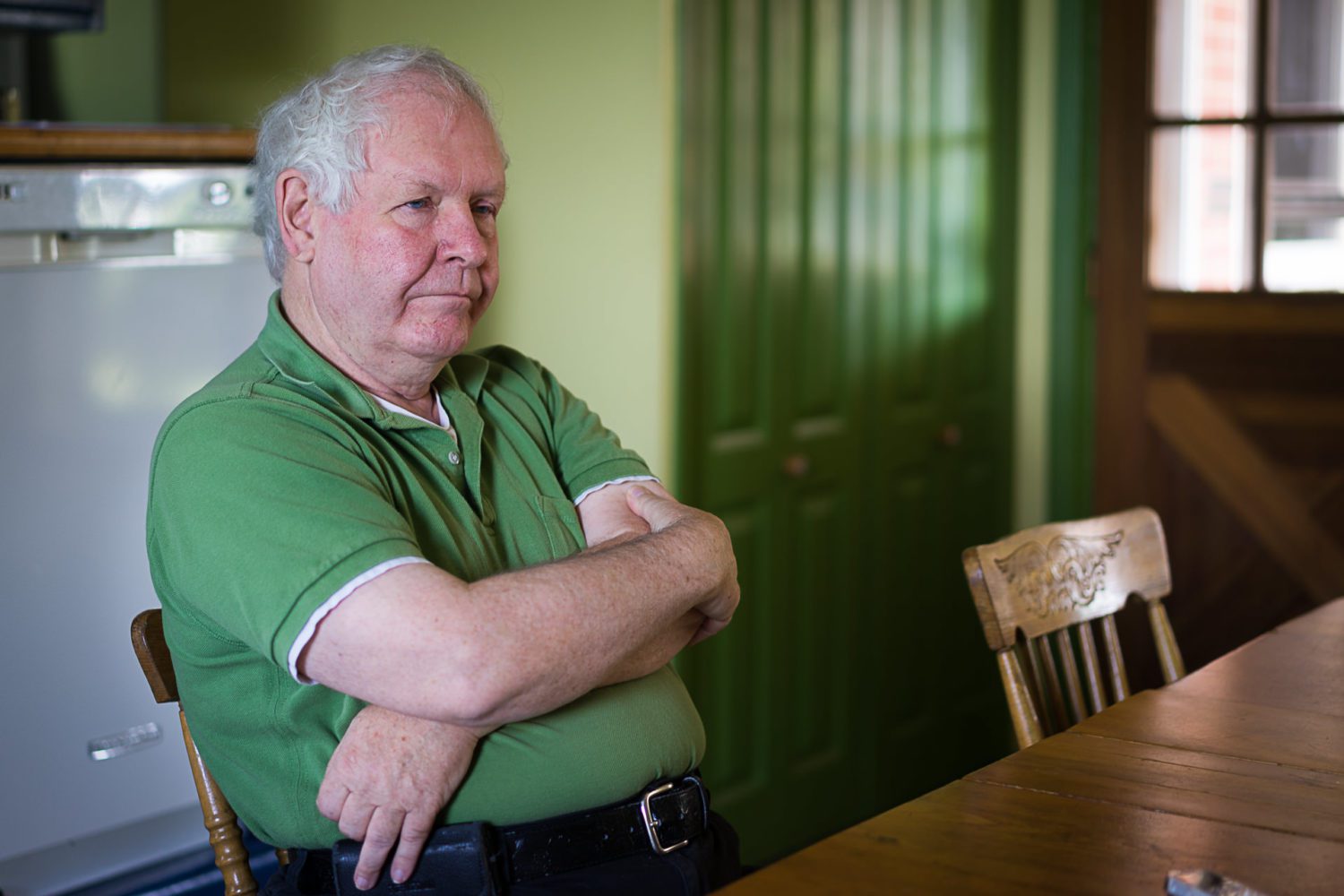
“Until I had the stroke I could play almost any musical instrument. I kind of miss that. I just bought a brand new guitar about six months before I had the stroke. Only played it five or six times.”
“I can’t milk cows anymore because I only have one arm, and it takes two arms to milk a cow. You’ve got to hold the milker with one hand and put it on with the other, and I can’t do that. I can’t do mechanic work. I used to do all of my own mechanic work – nothing went to the shop – everything was repaired right here: hydraulics, electronics, transmissions, motor jobs, everything. But it takes two hands to do that. I miss that, I really do.”
“I taught 4H kids square dancing, and I can’t dance anymore either. I miss that. My wife and I taught square dancing for 15 years. That was one of the most enjoyable things I ever did in my life.”
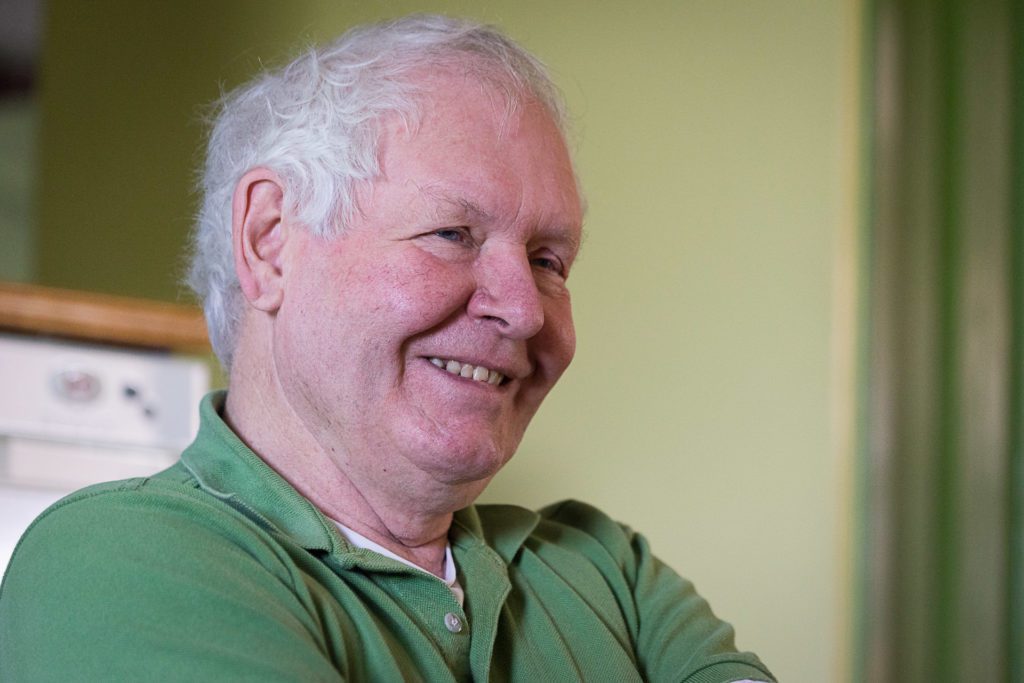
“You are friends with your family doctor. Do you worry his judgement as a doctor will be affected by your friendship?”
“He’s more afraid of that than I am. When I was in the hospital, I could hear him talking to other doctors out in the hallway. Like, ‘What do you think?’ He wouldn’t do anything until he checked with at least two or three other doctors just to make sure. But, I think he normally does that anyway. It’s all good because I think we both understand each other pretty well. I really enjoy arguing with him over GMOs and some of the chemicals that are in food. I don’t believe in them and he says. ‘Well it hasn’t been proven.'”
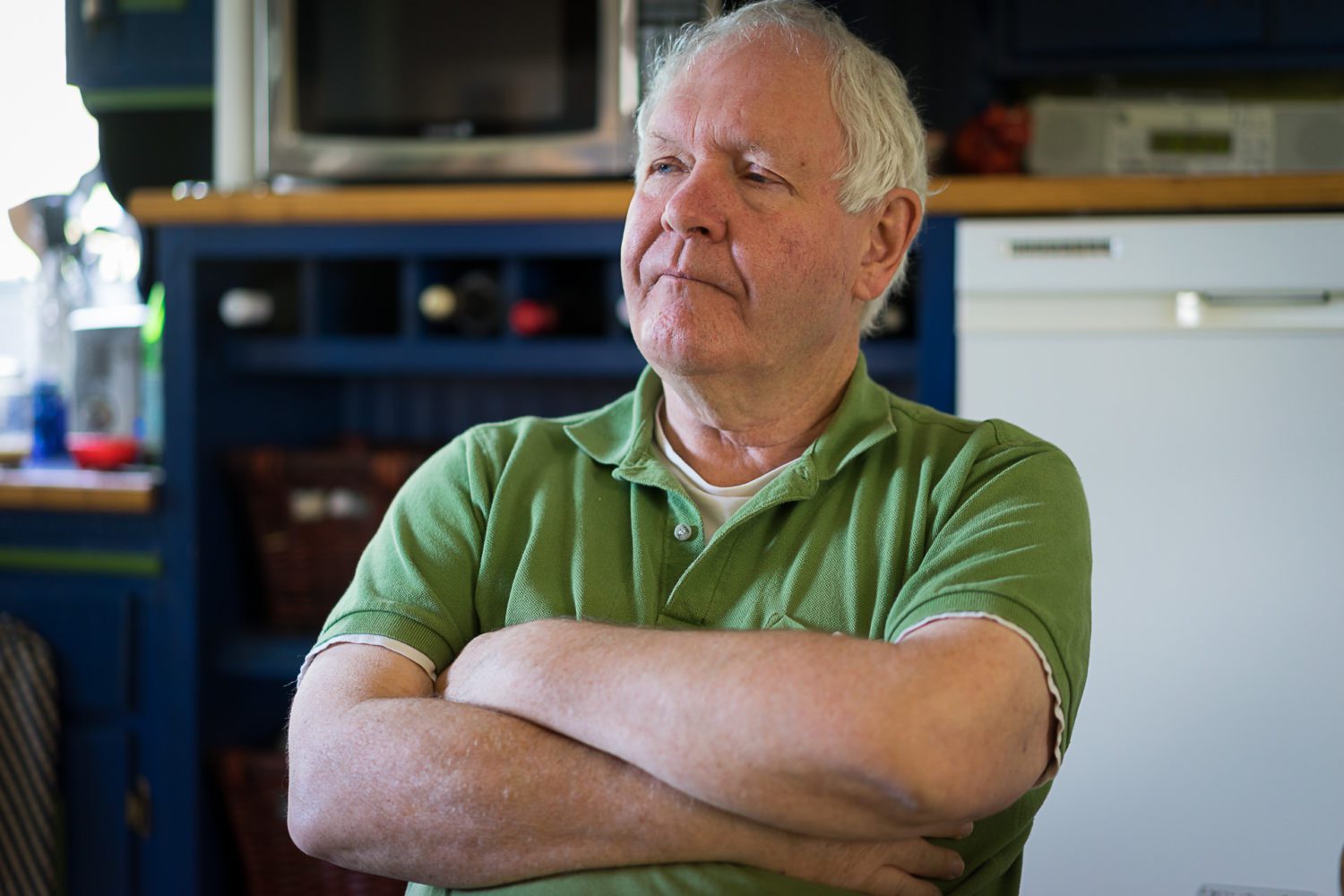
There’s good farmers and there’s bad farmers. There’s good mechanics and bad mechanics. And there’s good doctors and other guys that maybe should be doing something else.
“When I was a kid growing up there were probably only two doctors in town, maybe three until one guy shot himself. At that point health care was pretty basic, like really basic. But now there’s lots of them. There’s some doctors that are really preferred, and there’s other doctors that are just filling up a chair, making a living. As far as rural medicine is concerned, I think it has to be a special person who goes into rural medicine. You have to be very dedicated. You have to accept the fact that you’re not going to be in the city every night to a play or whatever. You just can’t do it. So, it’s a little different lifestyle. It’s more of a laid back lifestyle. There’s lots to do around here, lots of entertainment, but it’s different entertainment. It’s more homemade entertainment. Almost every week we go about 40 miles west of here to a kind of jam session in a pub, where there’s anywhere from 10 to 25 musicians. There’s a couple of doctors that come over from Pembroke, there’s a lawyer from up here that comes in, you know…”
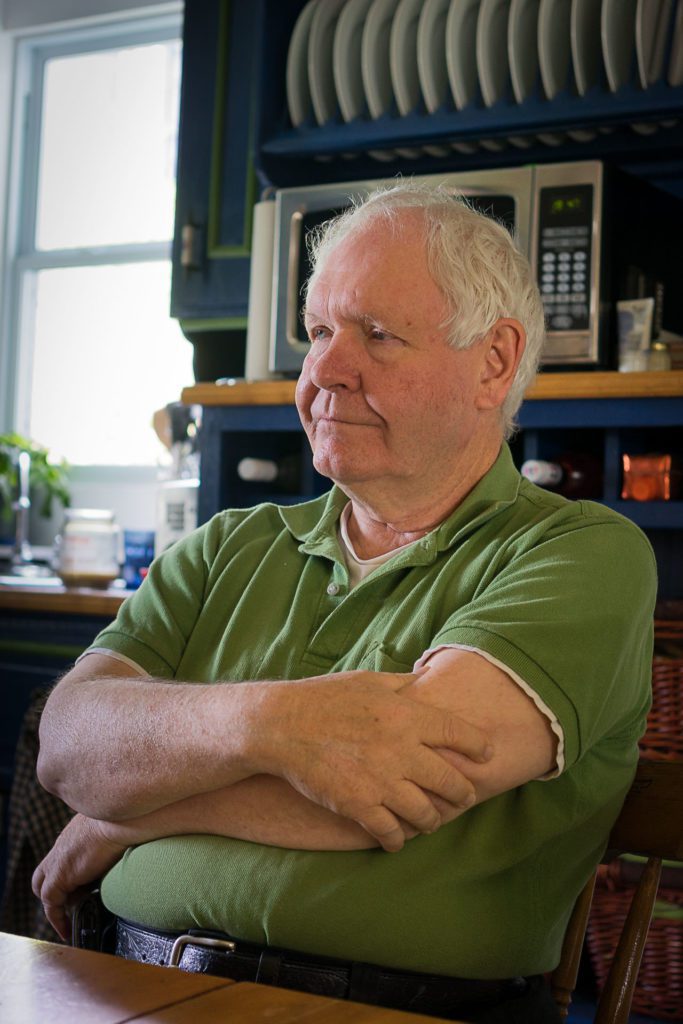
“I am working with a group trying to design a new old age home for the community. We encourage all the board members to visit as many old age homes as they can to see what they like and what they don’t like. We saw something very interesting just a week ago. There’ s a daycare in the same building.”
The kids come and visit the old people every day, and the old people go and visit the kids every day.
“That’s really good for both of them.”
“There’s a five year wait list to get in there. Another thing I just found out last week – a friend is trying to find a place for her 97 year old mother, and she’s looked at five different places. She said something you never think of until you go check it out on a rainy day. If you can’t drive underneath an overhang, it’s not good. You should be able to unload the person in dry weather, both out of the snow and out of the rain. It’s something that doesn’t cost very much money. Just design it.”
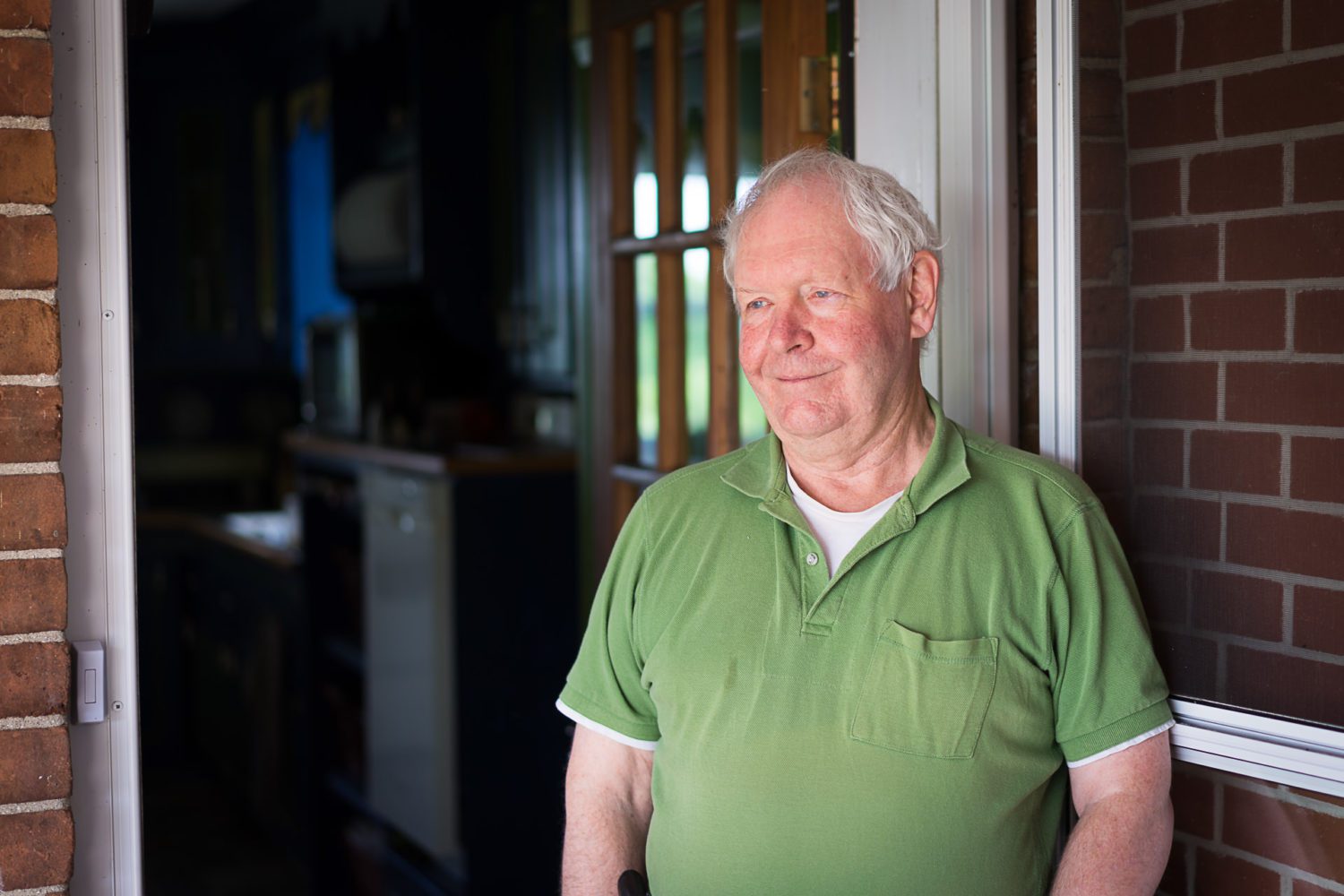
You have to be a special type of person to work in a nursing home.
“I couldn’t work in a place like that. You are working with people that are on the downward slide and they are not going to get better; they are not going to come out of there. To me, that’s very, very hard. My mother had Alzheimer’s for nine years before she died, and one of the hardest things I ever did was go and visit her. I didn’t know whether she knew me or not. I had no idea. I don’t think she did, but you don’t know. I really admire people who do that job. Here, they are usually local people. And they care. They know who is in there, they know them, they know the families…”


The comments section is closed.